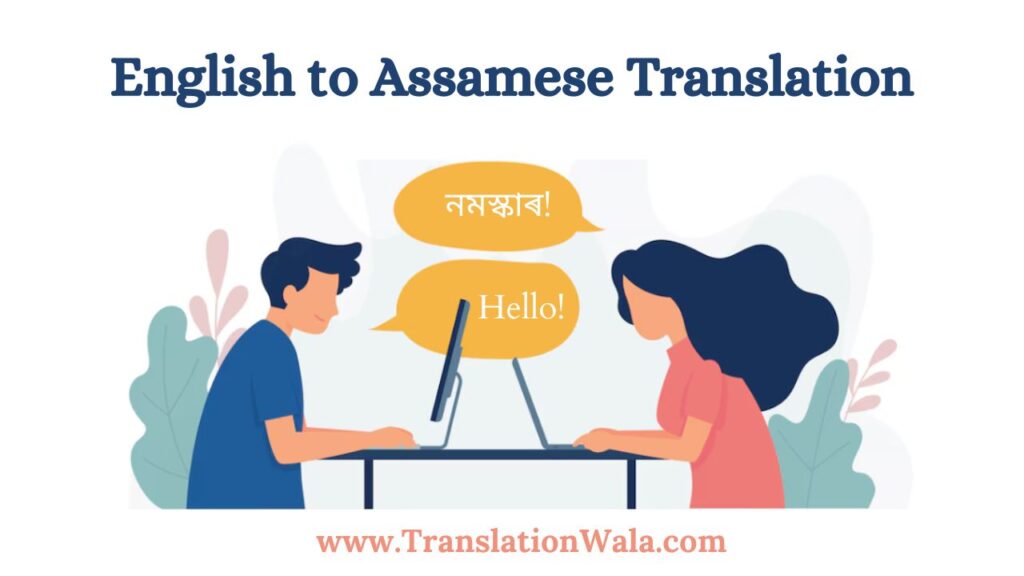In today’s linked world, it’s important to be able to communicate clearly across languages. Making sure your message gets across correctly is very important, whether you’re reaching out to a new audience, sharing business papers, or just getting in touch with family and friends. This is especially true when English to Assamese Translation, a lovely language that many people in Assam and around the world speak.
This blog goes into detail about how to translate from English to Assamese, giving people who want an easy and correct experience useful information. We’ll talk about the difficulties and subtleties of the situation and give you useful advice to make sure your message strikes a chord with people in Assam.
The Importance of Accurate Translation
Imagine that a business brochure meant to attract people from Assam is full of spelling and grammar mistakes and uses the wrong words. Such behavior would not only make a bad impression, but it might also cause confusion and missed chances.
It takes more than just changing words to translate something correctly. It means getting to the heart of the message, taking into account the cultural setting, and making sure the translated text flows easily in Assamese. This is very important because:
- Business Communication: In work, it’s important to communicate clearly and briefly. Translations that are done correctly make sure that all contracts, speeches, and marketing materials are fully understood, which builds trust and encourages people to work together.
- Government Documents: Legal papers and legal messages need to be carefully read and understood. Translation mistakes can lead to big problems, so precision is very important.
- Creative Content: If the translation doesn’t catch the spirit of the original language, literature, poems, and other creative works lose their power. A good translation can keep the beauty and flow of the Assamese text that was originally written.
The Nuances of English to Assamese Translation
There are a number of things that make switching from English to Assamese hard:
- Formal vs. Informal Register: Assamese has both official and casual forms, just like English. Picking the right range depends on the situation and the people you’re writing for.
- Cultural References: Some English jokes, slang, and culture references might not work the same way in Assamese. A good interpreter will be able to find options that fit the Assamese audience’s culture.
- Sentence Structure: The way sentences are put together in English and Assamese can be very different. A good translation will make sure that the text reads easily and moves well in Assamese.
Beyond the Words: Considerations for Accurate Translation
When trying to get a correct English to Assamese translation, here are some important things to keep in mind:
- Target Audience: Which person do you wish to contact? Before picking a language, the translator will need to know about the audience’s age, gender, level of education, and knowledge of science terms.
- Purpose of the Translation: Is it a work of art, a professional guide, or a business document? The tone and style used in the translation will depend on the goal.
- Translator Qualifications: Find a skilled translator who has worked in your field before and speaks and writes both English and Assamese very well. Look for qualifications from groups you can trust.
Also Read: Empowering Expression: Dynamic English to Odia Translation

Tools and Resources for English to Assamese Translation
Even though computer translation tools are getting better, they still have trouble understanding details of language. A skilled translation is highly suggested for important or artistic projects. That being said, here are some helpful links:
- Online Dictionaries: Assamese-English dictionaries can help you understand what words mean and find good replacements.
- Translation Memory Tools: These tools can save words that have already been translated, so your project will be consistent.
- Freelance Marketplaces: Platforms put you in touch with independent interpreters and let you compare prices and skills.
Tips for Working with a Translator
Follow these tips to make sure you and your translator can work together easily:
- Provide Clear Instructions: Describe the goal of the translation, the group you want to reach, and the tone you want to use.
- Glossary of Terms: If your work uses technical terms, include a list of their Assamese translations.
- Style Guide: You should give the translation your style guide if you have one so that everything is consistent.
- Feedback and Revision: Give yourself time to make changes based on what you hear.
Conclusion: Investing in Quality Translation
The goal of accurate English to Assamese translation is not just to change words; it is also to build relationships and help people understand each other better. You can make sure your message gets through to people in Assam and helps you reach your goals by understanding the subtleties of the language and working with a skilled translation.



